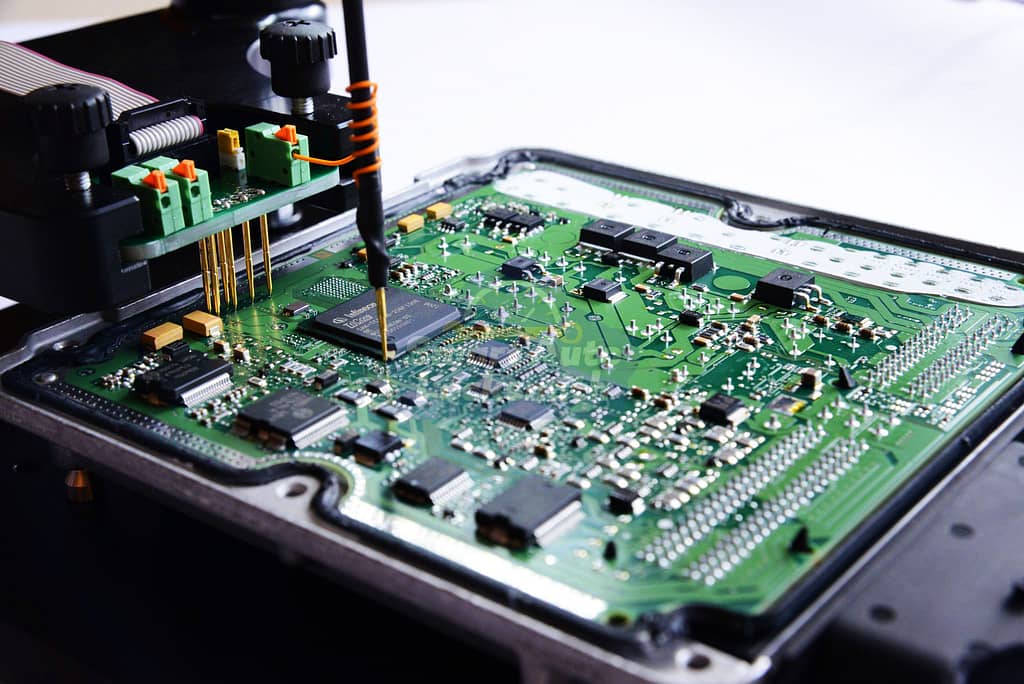Continental, a global leader in automotive technology, has unveiled a groundbreaking innovation aimed at enhancing the capabilities of modern vehicles: the cross-domain high-performance computer. This development represents a significant leap in the automotive industry's ongoing quest for smarter, safer, and more efficient vehicles. By integrating multiple vehicle functions into a single computing unit, Continental's new technology promises to revolutionize how cars operate and interact with both drivers and the environment.
What is a Cross-Domain High-Performance Computer?
A cross-domain high-performance computer (HPC) is a centralized unit that combines the functions of multiple, traditionally separate automotive systems into one powerful, cohesive system. These systems can range from driver assistance technologies and infotainment systems to power train and safety functions. Continental's new HPC integrates various functions, including the processing of data from sensors, cameras, and radar, into a single unit that can handle complex tasks like real-time decision-making, adaptive driving, and seamless connectivity.
The advantage of this approach lies in its ability to streamline vehicle architecture, improving both the efficiency and performance of the car. By reducing the need for multiple, dedicated control units, the HPC minimizes wiring complexity, saves space, and reduces vehicle weight — all of which contribute to better fuel efficiency and reduced carbon emissions.
Benefits for Vehicle Performance and Safety
One of the key advantages of Continental's cross-domain HPC is its ability to enhance vehicle performance and safety. By processing vast amounts of data from various sensors and systems in real time, the HPC can improve driver assistance features, such as adaptive cruise control, lane-keeping assistance, and emergency braking systems. This can significantly enhance road safety, helping to reduce accidents and prevent collisions by providing timely responses to changing road conditions and driver inputs.
Moreover, the HPC plays a crucial role in enabling autonomous driving. As vehicles transition toward higher levels of automation, the need for powerful computing systems that can process and analyze data from a variety of sensors becomes critical. Continental's HPC is designed to meet these demands, providing the necessary processing power to support complex AI algorithms and machine learning models used in autonomous systems. In this context, ensuring the reliability of key components like the Mercedes ECU repair is essential, as any failure in the ECU can impact the vehicle's overall performance, including its autonomous driving capabilities.

Improving Connectivity and In-Car Experience
Another major benefit of this high-performance computer is its impact on in-car connectivity. The HPC serves as a central hub that can seamlessly integrate various infotainment and communication systems. It enables better vehicle-to-everything (V2X) communication, allowing the car to interact with surrounding infrastructure, other vehicles, and even the cloud.
For drivers and passengers, this means improved navigation, better entertainment options, and enhanced connectivity with smart phones and smart devices. Continental’s HPC can support high-bandwidth data applications such as video streaming, real-time traffic updates, and interactive user interfaces, making the in-car experience more enjoyable and efficient.
Environmental and Economic Benefits
Continental’s HPC also has significant environmental and economic benefits. By centralizing vehicle functions, the need for multiple control units is eliminated, which reduces the overall weight and complexity of the vehicle. This results in lower energy consumption, contributing to improved fuel efficiency and a reduction in CO2 emissions. Additionally, the compact and efficient design of the HPC makes it easier to implement in electric vehicles (EVs), which are increasingly becoming the norm in the automotive industry.
From an economic perspective, Continental's HPC could reduce production costs for automakers by simplifying vehicle architecture and lowering the number of components needed for a vehicle’s electronic systems. It also allows for easier updates and software maintenance, which can extend the lifespan of the vehicle’s systems and improve overall vehicle reliability.
Looking Ahead
As the automotive industry continues to evolve toward greater automation, electrification, and connectivity, Continental’s pioneering cross-domain HPC is poised to play a critical role in shaping the future of transportation. By integrating complex functions into a single, high-performance system, Continental is leading the way toward smarter, safer, and more sustainable vehicles.
In conclusion, Continental’s cross-domain high-performance computer is a technological breakthrough that combines innovation, safety, and efficiency. As vehicles become more interconnected and autonomous, this advanced computing system will provide the backbone for future advancements, creating a seamless, intelligent driving experience for both drivers and passengers alike.